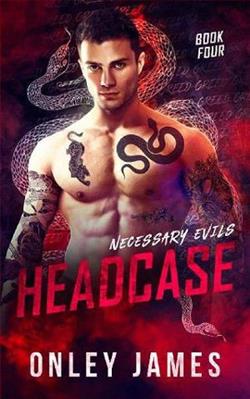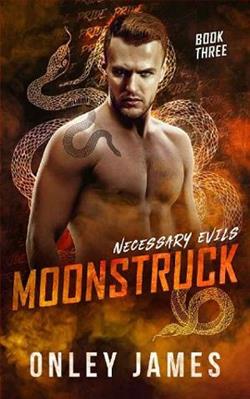Page 62 of From the Dust Returned
“At three A.M.!”
Jim vanished.
For a moment, Will watched Jim dance around over there, shirt uplifted, pants going on, while off in night country, panting, churning was this funeral train all black plumed cars, licorice-colored cages, and a sooty calliope clamoring, banging three different hymns mixed and lost, maybe not there at all.
“Here goes nothing!”
Jim slid down the drainpipe on his house, toward the sleeping lawns.
“Jim! Wait!”
Will thrashed into his clothes.
“Jim, don’t go alone!”
And followed after.
Death Is a Lonely Business
A fantastical tale of mayhem and murder set among the shadows and the murky canals of Venice, California, in the early 1950s. Toiling away amid the looming palm trees and decaying bungalows, a struggling young writer spins fantastic stories from his fertile imagination upon his clacking typewriter. The nameless writer steadily crafts his literary effort—until strange things begin happening around him. As the incidents escalate, his friends fall victim to a series of mysterious “accidents”—some of them fatal. Aided by a savvy, street-smart detective and a reclusive actress of yesteryear with an intense hunger for life, the wordsmith sets out to find the connection between the bizarre events, and in doing so, uncovers the truth about his own creative abilities.
Venice, California, in the old days had much to recommend it to people who liked to be sad. It had fog almost every night and along the shore the moaning of the oil well machinery and the slap of dark water in the canals and the hiss of sand against the windows of your house when the wind came up and sang among the open places and along the empty walks.
Those were the days when the Venice pier was falling apart and dying in the sea and you could find there the bones of a vast dinosaur, the rollercoaster, being covered by the shifting tides.
At the end of one long canal you could find old circus wagons that had been rolled and dumped, and in the cages, at midnight, if you looked, things lived—fish and crayfish moving with the tide; and it was all the circuses of time somehow gone to doom and rusting away.
And there was a loud avalanche of big red trolley car that rushed toward the sea every half-hour and at midnight skirled the curve and threw sparks on the high wires and rolled away with a moan which was like the dead turning in their sleep, as if the trolleys and the lonely men who swayed steering them knew that in another year they would be gone, the tracks covered with concrete and tar and the high spider-wire collected on rolls and spirited away.
And it was in that time, in one of those lonely years when the fogs never ended and the winds never stopped their laments, that riding the old red trolley, the high-bucketing thunder, one night I met up with Death’s friend and didn’t know it.
It was a raining night, with me reading a book in the back of the old, whining, roaring railcar on its way from one empty confetti-tossed transfer station to the next. Just me and the big, aching wooden car and the conductor up front slamming the brass controls and easing the brakes and letting out the hell-steam when needed.
And the man down the aisle who somehow had got there without my noticing.
I became aware of him finally because of him swaying, swaying, standing there behind me for a long time, as if undecided because there were forty empty seats and late at night it is hard with so much emptiness to decide which one to take. But finally I heard him sit and I knew he was there because I could smell him like the tidelands coming in across the fields. On top of the smell of his clothes, there was the odor of too much drink taken in too little time.
I did not look back at him. I learned long ago, looking only encourages.
I shut my eyes and kept my head firmly turned away. It didn’t work.
“Oh,” the man moaned
.
I could feel him strain forward in his seat. I felt his hot breath on my neck. I held on to my knees and sank away.
“Oh,” he moaned, even louder. It was like someone falling off a cliff, asking to be saved, or someone swimming far out in the storm, wanting to be seen.
“Ah!”
It was raining hard now as the big red trolley bucketed across a midnight stretch of meadow-grass and the rain banged the windows, drenching away the sight of open fields. We sailed through Culver City without seeing the film studio and ran on, the great car heaving, the floorboard whining underfoot, the empty seats creaking, the train whistle screaming.
And a blast of terrible air from behind me as the unseen man cried, “Death!”
The train whistle cut across his voice so he had to start over.
“Death—”















